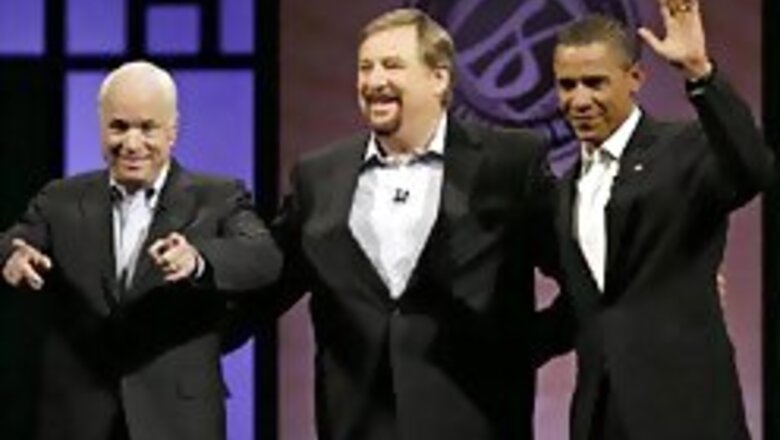
views
Washington: The next American administration must shift from a US preoccupation with the Middle East to devote more attention to Asia and the rise of China and India, a major report said on Wednesday.
The nonpartisan Asia Foundation, in a new quadrennial study of the US role in Asia, said President George Bush's successor in the White House must shift from responding to crises to anticipating and shaping major developments.
"While the United States has been preoccupied with the situation in the Middle East, the Asian balance has been shifting quietly, if inexorably, in the direction of others," said the report, crafted by 20 senior US and Asian experts.
The 310-page report was delivered to the policy teams of Democratic presidential candidate Barack Obama and Republican rival John McCain. Retired US diplomat J Stapleton Roy, one of the leaders of the project, said Washington since the September 11 attacks often has focused 'on the urgent at the expense of the important' and needs a new approach in light of the rise of China and India.
"The perception of Asians is that we are not as engaged as we were in the past and we are not as engaged as we should be," said vice chairman of Kissinger International Associates, Roy.
The San Francisco-based foundation said the United States faces a 'triple challenge: getting our own house in order, defining with greater clarity a geopolitical strategy for Asia, and promoting concerted efforts among Asian powers to cope with pressing transnational problems.'
To engage Asia more effectively, the next US president will need to maintain and modernise alliances with Japan and South Korea, shore up ties with China and India and embrace regionwide efforts to build formal institutions like the ASEAN Regional Forum and the East Asia Summit.
To boost US leverage in Asia, 'the operational rule for policy should be to maintain better ties with each of the other major powers than they can forge between themselves,' the report said.
Former South Korean Foreign Minister Han Sung-Joo, who directed northeast Asian contributions to the project, said Bush's successor will inherit the North Korean nuclear problem and should not lose time in diplomacy aimed at talking Pyongyang into giving up its atomic weapons.
"The United States and its diplomatic partners should have a contingency plan for the event of Kim Jong-il's demise or incapacitation," Han said, referring to recent reports of the potentially destabilising illness of North Korea's leader.
Ambassador-at-large for Singapore, Tommy Koh said Asians were alarmed at anti-trade rhetoric coming out of the US Congress and in the presidential primaries and urged Washington to renew its commitments to global and regional trade pacts.



















Comments
0 comment